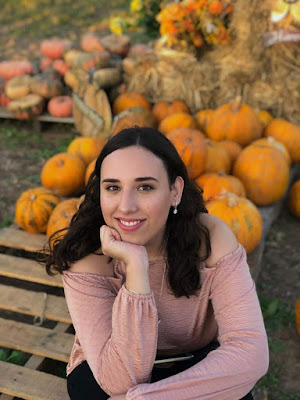Rebeca Soto recently graduated from Angelo State University and will be attending Arizona State University as a graduate student in astronomy in the fall of 2021. This summer she is working with Prof. Brendan Bowler on the orbital properties of planet-hosting binaries as part of the TAURUS research program at The University of Texas at Austin.BB: What inspired you to pursue a career in astronomy or science in general? What draws you to science in the first place?
RS: Since I was a child I always loved looking at the stars. I remember going to a small town in Mexico where my dad is from; it had very dark skies and made me fall in love with astronomy. My bed used to be next to the window and every night I would spend a lot of time looking up and seeing how the stars and planets moved.
When I got to high school I had a physics teacher who inspired me to go into STEM. I always liked math and physics but seeing another woman doing something similar, and seeing how good she was at it, was important to me. In high school I used to do a lot of reading, which also motivated me to study astronomy.
BB: Please tell me more about yourself. What do you do for fun?
RS: I was born and raised in Mexico. I moved to the US four years ago for college and I really like it here. My plan at first was to finish college and go back home but I now want to stay for longer.
I like to read, especially novels, and I enjoy spending time with other people. I’ve been socializing with other TAURUS students; we’ve gone to dinners and went swimming at Zilker. It was nice!
BB: In your opinion, what qualities make astronomy so unique and compelling?
RS: It’s amazing to me that we can study objects so far away. I also like how creative astronomers get to be in their work. The field also seems very social; everyone seems open and wanting to help when questions come up.
BB: Is there anything that you’re particularly proud of that you’d like to share— for example, something that’s happened along your academic or personal trajectory?
RS: I’m really proud of getting my Bachelor’s degree. It’s been a goal since I was a child. I’m also proud that I graduated Magna Cum Laude, which was a personal goal of mine to show my parents how appreciative I am of their support. Getting into graduate school was also a big deal! Applying to graduate schools was challenging because it’s always seemed distant to me.
BB: What mentors, teachers, or role models have been the most inspiring to you in your life?
RS: Definitely my parents; they always supported me and helped me pursue my dreams. My brother, who’s smart, hard working, and determined. He’s always been a role model for me. Within astronomy, my advisor as an undergrad—Dr. Carrell—who first got me into research. He explained how everything worked, especially applications for graduate school.
BB: What challenges and obstacles have you faced in your career? How have you overcome these challenges?
RS: Not having English as a first language is something I’ve struggled with. It’s always been harder to pay attention in class because I needed to focus. I also find that it can be challenging reading scientific papers. I feel like I’ve had to think more about what I’m going to say than others. My accent has also made me self conscience. It’s been one of my biggest obstacles, especially when I present in English, but the ability to speak two languages also has advantages.
BB: You’ll be heading to the Arizona State University for graduate school next month— congratulations! What are you most looking forward to at ASU?
RS: I’ve heard from several professors that graduate school is the best and the worst of times. I’m looking forward to the learning and the growth. I’m also excited to be working on my own research. It’s scary but I’m looking forward to it. Also, as an undergrad my main focus has been in physics, but my passion is in astronomy, so I can’t wait to pursue that more at ASU.
BB: What advice would you give to high school and undergraduate students interested in following your path?
RS: I would tell them to not give up. There’s a misconception that in astronomy, physics, and STEM that you have to be very smart, and have to be very good at math. But it’s also about being resourceful and working very hard. If you’re not the best at math, go the extra mile and don’t give up. Don’t be discouraged because you don’t think you’re smart enough.
BB: What are your future and long-term career goals?
RS: In the short-term I’ll be going to grad school and getting my PhD. I plan to study galaxy evolution, but I’d like to also continue carrying out some research in exoplanets, maybe as a second research project.
Beyond that, I would like to become a professor because from what I’ve seen it’s a great job. You get to do research on work you’re interested in, and you can continually learn from other people. It’s a great position where you can help students. I would especially like to support students with my same background because it can be easier to for both sides to relate to each other based on common experiences and struggles.
I’m really glad for TAURUS, especially as an international student. I feel supported and I like that I can meet other students with similar backgrounds, especially Hispanic students because I don’t know that many.






